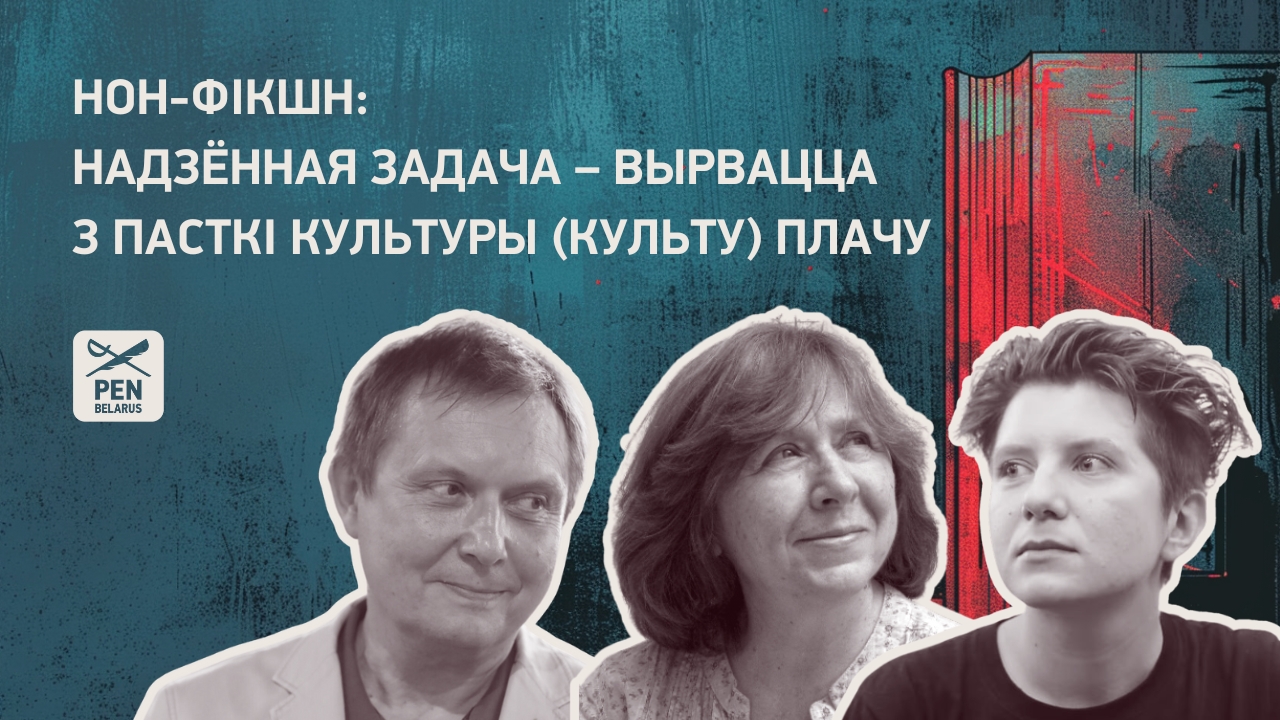
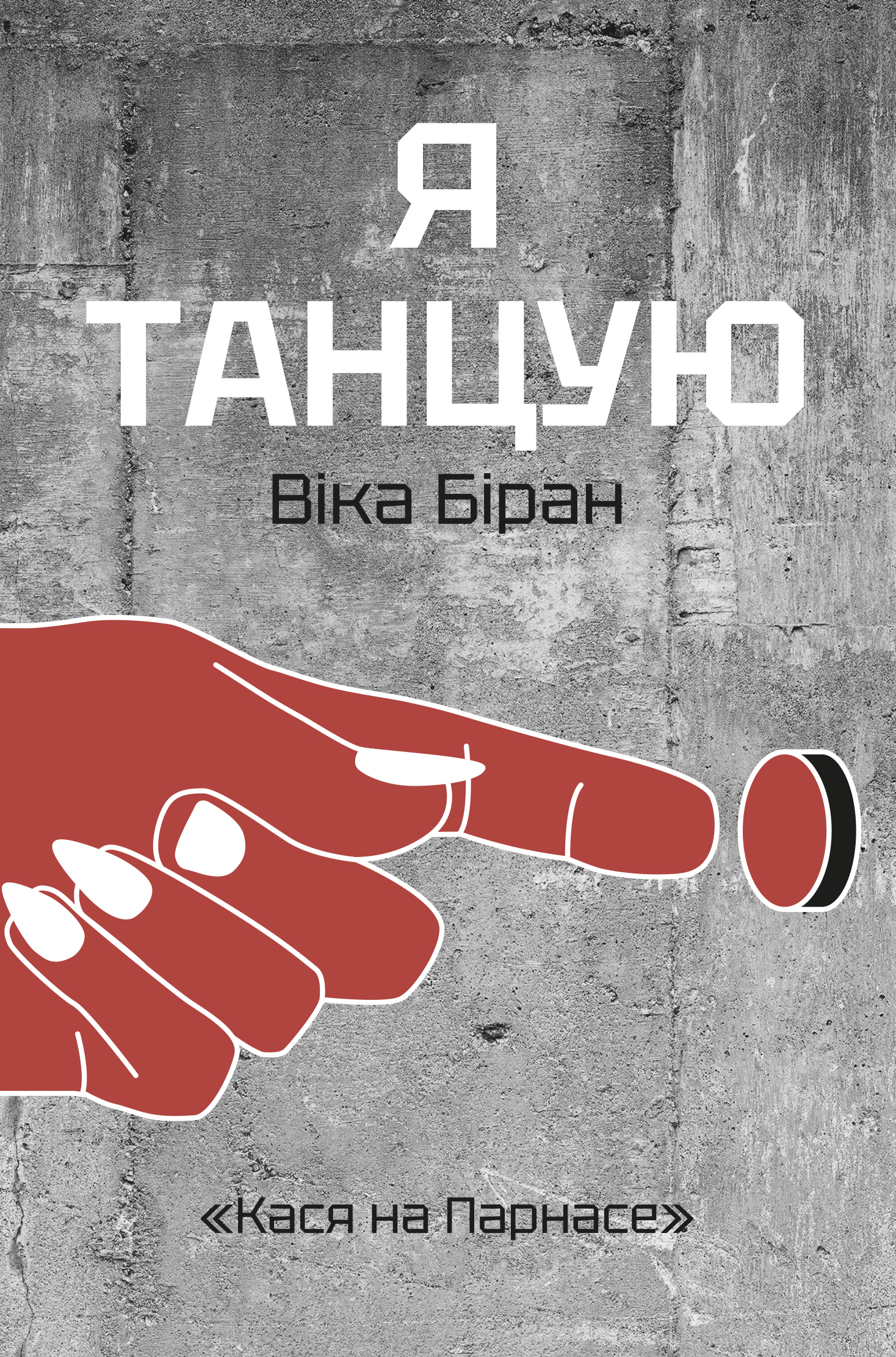
Non-fiction: not following tradition
The book “I Dance” by Vika Biran
Vika Biran: So far, I’ve written only one book, but I have considerable experience working with the Belsat website — and in my mind, non-fiction is closely intertwined with real-time journalism; the two stand side by side. This blend subtly frees the mind from the overwhelming emotions, thoughts, and reactions to the difficult realities of today’s world. At the same time, through creativity, I feel a portal opening in me — a passage to something new that prevents me from getting stuck in the past. It’s essential to get out of it, because life is dynamic, and I want to be part of everything.
Svetlana Alexievich: Already as a journalism student, I began to discover the genre that my ears and eyes were attuned to. These settings, however, had been forming since childhood: I especially loved the evenings when, after a long day of chores, the village women would gather on a bench and start chatting about what was on their minds — love, death, the latest village happenings… It was incredibly fascinating! None of the books, even though our house was full of them (we were a teacher’s family), left such a deep impression on me. That’s how I learned to listen, to trust what I heard — to the voice of the heart. This is where my trust in life was born.
And then there was a decisive encounter with Ales Adamovich. I was assigned to do an interview about his famous book I Am from the Fiery Village. In that brilliant work, the weakest parts, perhaps, were the author’s commentaries — and we discussed that at length back then.
I’ve long been convinced: in non-fiction, there should be very little of the author — I say that categorically! Because what you personally say quickly sifts away with time. But the words spoken by others, those who have grasped something from the chaotic flow of life events, never grow old.
One of the most powerful episodes from Adamovich’s book for me is this: people are burning, and a boy — who later manages to escape the hell — hears his little sister cry out in despair, “Mama, but I have my galoshes on…” And the mother replies, “God, why did I put those on you — your feet will burn longer…” No writer, not even Dostoevsky, could have written something more piercing — because such things cannot be invented. My work as a journalist further confirmed my belief in the power of the voices of real people.
There’s something else that is both very important and very difficult in non-fiction (and perhaps this sounds heretical): not following tradition. Yes, that’s right! Because tradition, in the sense of normalizing the course of things, often becomes banality. And when you look out the window — what you see is the raw, unfiltered reality that leaves you stunned, bewildered.
If you want to get closer to reality — break out of habitual, stereotypical ways of thinking about events, out of the clichés of everything you’ve read. Anything that comes purely from your own head, purely from the books you’ve read, makes you weaker. You’re no match for what’s happening outside the window.
That’s why I spent such a long time at the beginning searching for my own voice.
On the other hand, a stream of consciousness is not a book. For a non-fiction author, it’s incredibly rare — and a true blessing — to find not just a narrator swept along by the biological current of life, but a person of talent, someone who has truly reflected on their experiences.
And that leads to another great task — to find meaning in every life.
Sometimes people imagine non-fiction as not quite literature. At events after I received the Nobel Prize, many journalists would attend and speak to me as if they, too, had received a kind of permission to do something on equal footing. And that made me happy. Because you should never think that you are just yourself. In reality, you are made up of everything — of books, of what you’ve seen, of what you’ve heard.
So, first, you have to search for the word.
No — first, search for yourself. And then the word.
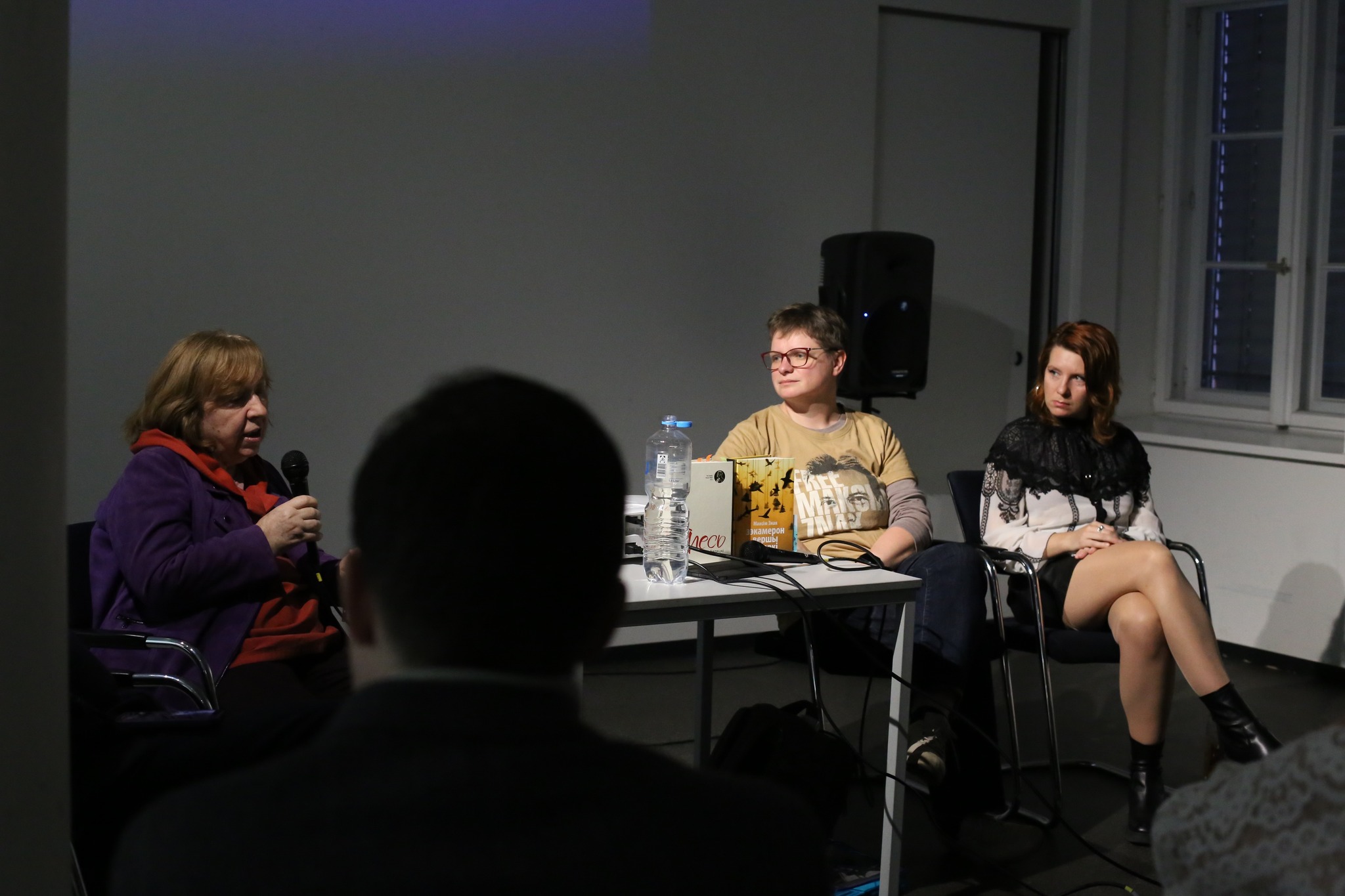
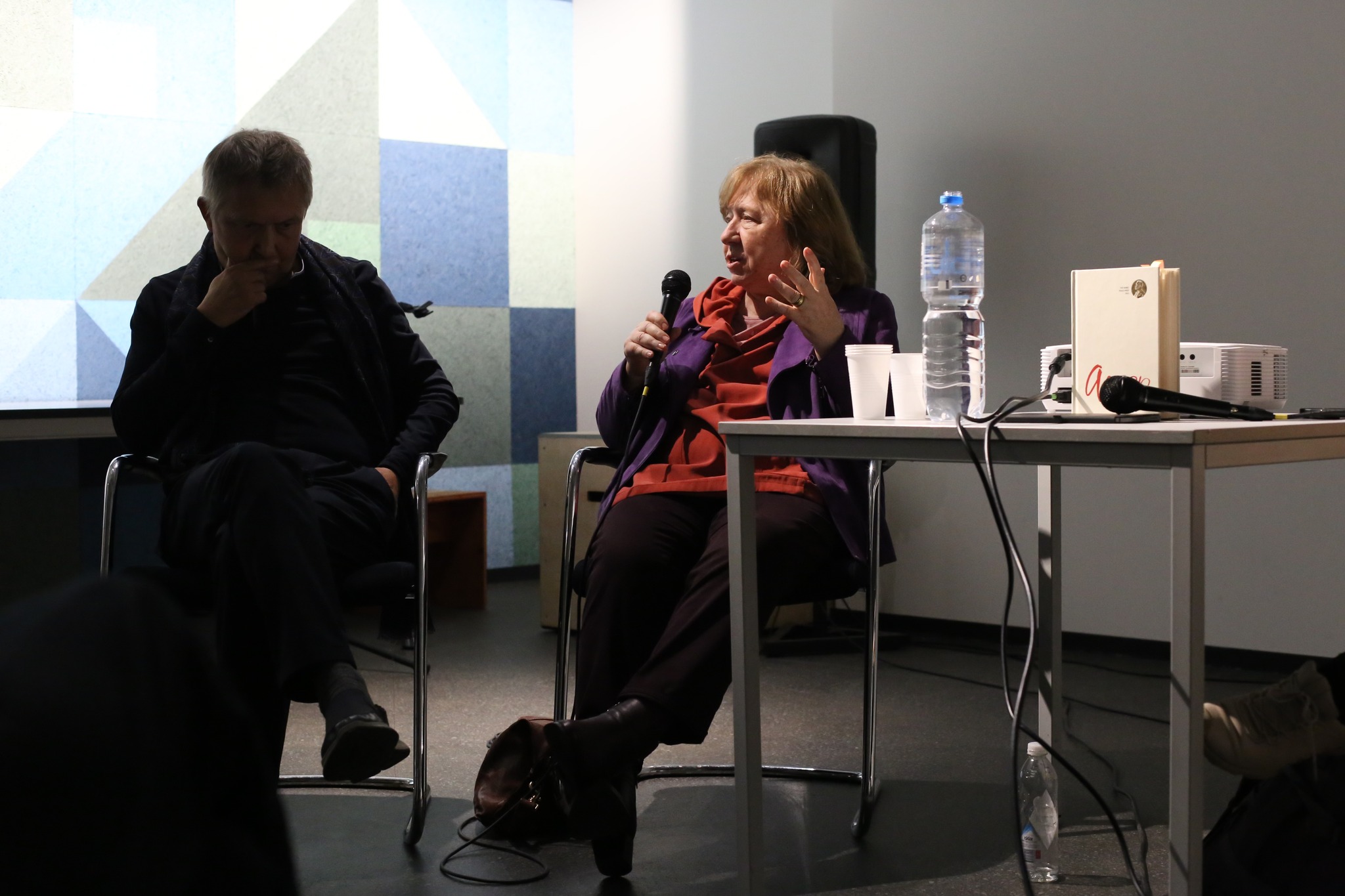
Non-fiction: the responsibility to think things through to the end
I touched on the topic of memory politics during a recent conversation with Francis Fukuyama. In his reflections, the renowned thinker emphasized that without memory, there can be no healthy construction of democracy.
This isn’t just a compelling thought, but a response to real-world practice. In Europe, over the last fifty years, around 200 laws have been adopted to regulate memory processes — from Portugal to Estonia. This has also affected Russia. In Belarus, 2022 was declared the “Year of Historical Memory,” and just five days after Lukashenka’s corresponding decree, a law “On the Genocide of the Belarusian People” (covering 1941–1949) was passed. Half a year later, the Prosecutor General, Andrei Shved, published a book — its final chapter dedicated… to the year 2020. This is how laws about memory shape current political agendas.
It’s not just “bad actors” who engage in memory regulation. The first known document of this kind was adopted two and a half thousand years ago, when after the Peloponnesian War, the Spartans captured Athens. Soon the tables turned, and the Athenians issued a decree about the Thirty Tyrants — a ruling that essentially meant: let us forget them, and thus resolve the issue of lustration.
Just recently, the courageous intellectual Vladimir Kara-Murza spoke at a major democratic forum in Prague and concluded with a quote from Soviet dissident Vladimir Bukovsky: “No one will divide us, because we all came out of the same concentration camp.”
I was stunned listening to this. There could hardly have been a more inaccurate statement at that moment. Because in the Russian concentration camp, people either die — like Navalny — or they are swapped, like Kara-Murza himself, or… what do the others do? They go to war in Ukraine: to rape, plunder, and kill.
So how can anyone claim, “We came out of the same camp, and that unites us”? That is simply not true.
And what does this all lead to? Here I want to recall the most important legacy of Ales Adamovich: “You have to think things through to the end.”
Vika Biran: I recently visited the sites of former concentration camps in Buchenwald, Auschwitz, and Birkenau. And you know what I saw? Souvenir shops selling all kinds of items, entry tickets with price tags… There’s even a VIP service that lets wealthier visitors skip the lines: pay extra and walk through a special fast-track corridor. There’s also selective remembrance — some victims are acknowledged, others not. There’s an understanding of today’s world where some people have the right to remember “this and that,” while others must forget. Some are granted full access to information; others are not. There’s still a claim that “we honor all victims equally,” but in reality, that’s simply not the case. For one theme I see five exhibitions; for others, like the persecution of homosexuals, not a single one…
To me, non-fiction allows one to be brave — first and foremost, with oneself. It gives permission to entertain thoughts that may not fit neatly into the dominant public discourse. And for that alone, I think we should be grateful for the genre. It affirms honesty, openness — with oneself and with others.
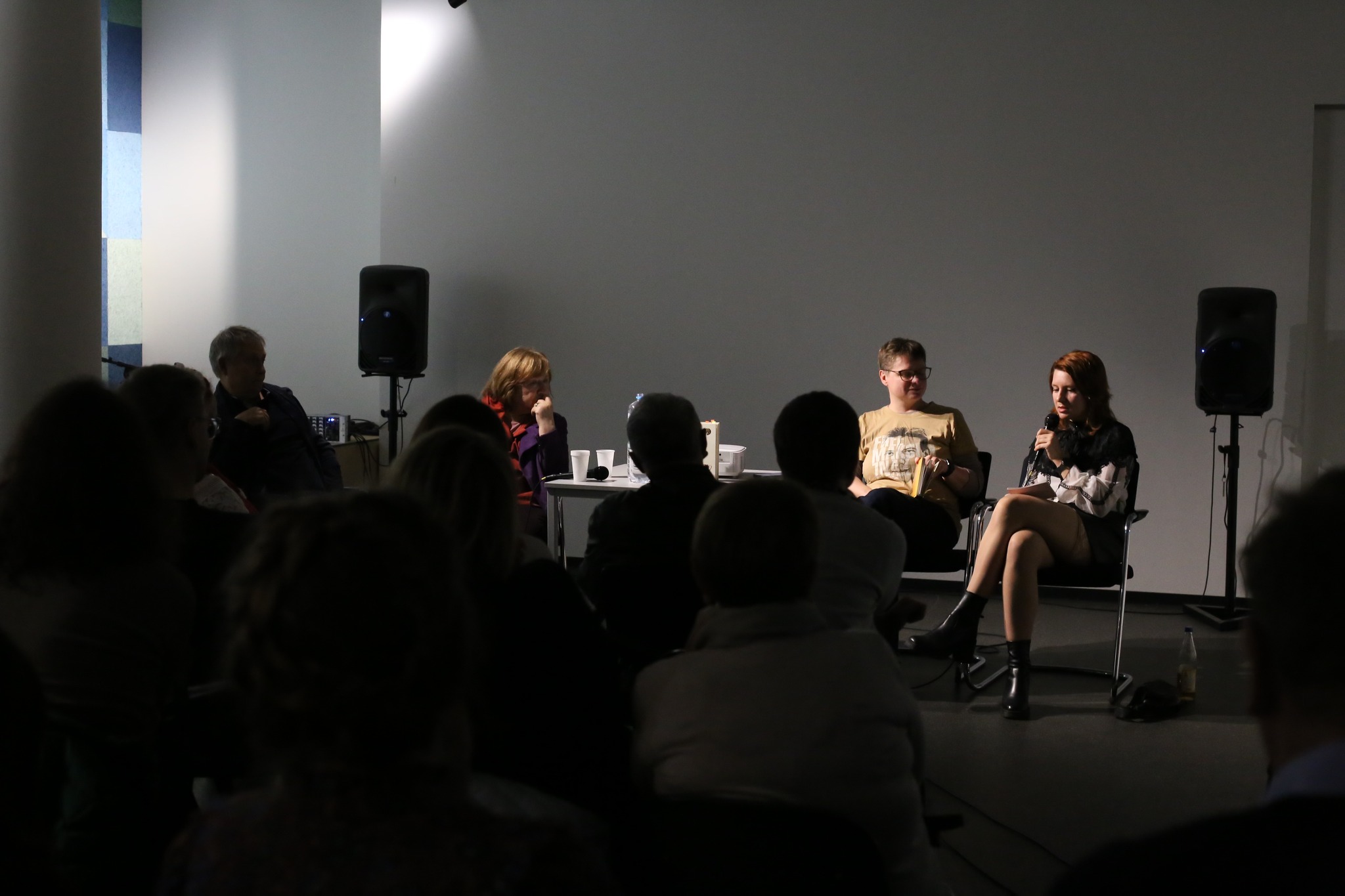
Non-fiction: not confusing truth with a plausible version
Alexander Lukashuk: There are three types of memory: episodic — about what happened; semantic — about the meaning of what is remembered, in other words, interpretation; and procedural — how things are done, the methodology, so to speak. You see, even here it’s already complex, although it often gets presented as simplification. Because the moment you become a narrator of the past, you also become a kind of writer. The reality that, for example, Svetlana (Alexievich) immersed herself in for decades — she reshaped it. And again, I recall Adamovich: you must ruthlessly think through what this or that really means.
Vika (Biran) told horrifying stories, and it reminded me of the time I decided to publish the names of the perpetrators at Kurapaty — NKVD employees who operated the execution machinery. I had brief access to some previously classified archives. Eventually, I compiled and published a list. Only one person complained — he said his father’s name was there and that he had just been a courier. Everyone else remained silent — like water off a duck’s back.
I also remembered another moment: in early 1993, the Belarusian Supreme Soviet reinstated the Communist Party. Again, not a single leader or rank-and-file member was held accountable.
So, what conclusion can we draw from this? Forgiveness is not an option. No one has the right to speak on behalf of the victims or let their killers off the hook. When a democratic country avoids lustration, what we see is the resurgence of exactly what we’re witnessing today in Belarus and Russia.
Ukraine opened its archives a long time ago — and just look at the upheaval that followed.
The takeaway from our observations today — and perhaps a sobering truth — is this: some form of punishment is inevitable, even if it’s just the public naming of names for the historical record.
Svetlana Alexievich: While I was writing Secondhand Time, I very much wanted to find a living executioner. After all, not everyone in their 80s or 90s has Alzheimer’s… And during one of my trips to former Gulag sites in Magadan, someone tipped me off about an elderly woman who had once worked as a caretaker for the children of “enemies of the people.” I had already heard how mercilessly cruel these “educators” were. They directly terrorized the children, telling them they not only could be beaten, but should be killed — simply because of who their parents were.

Non-fiction: engaging with the present from the vantage point of the future
Svetlana Alexievich: I also tried to speak with some of the perpetrators from 2020. One of them agreed. I showed him a photo from that August — people brutally beaten, unrecognizable — and asked, “How could you treat your own people this way? What have you done?” He simply replied, “That’s the job.” And that was it. No further reflection, just a wall.
For someone’s consciousness to shift, something in the collective worldview has to change. When Gorbachev’s era began, it was difficult, but I could slowly reach people’s personal memory. Now, when I approach these “diligent workers,” the chances for truth are slim. They still live in the recent past — emotionally and mentally. Time hasn’t yet become history; it hasn’t turned into distance, which allows us to see more clearly. As long as they’re still clinging to the immediate experience, all they can offer is banal phrases.
I once visited the mother of one of the security officers. She immediately began to cry: “Wait until my son comes home — you’ll see how good he is! Nearly two meters tall, handsome… Just the other day, someone wanted to buy our apartment. But when they learned who the owner was, they ran away. Aren’t we people too?”
Again, we’re living in a time when most people are still trapped in everyday, domestic understanding of historical events. They haven’t reached a deeper, more reflective level.
Still, it’s worth trying to tap into memory now — what we extract from it is all we’ll have. I can see that people are living in a state of tense, exhausting anticipation. For instance, the hope of returning home. Their memories of suffering are still vivid.
But I still haven’t fully grasped what we’re extracting from ourselves about our national tragedy… It feels like we’re still stuck in a culture — or a cult — of mourning.
The challenge in my new book, which is about our most recent collective tragedy, is to answer the question: Why did we descend into that hell? That should be the central question — not merely recording pain. Of course, we can’t avoid it, but above all, we must ask — what for?
Yes, I deeply felt the social aspects of it all: people looked beautiful, we felt like a nation, there was a sense of unity… But again, we must draw out something more.
Even I haven’t yet found the words for it. So how can I expect clarity from others if I myself don’t yet fully understand how to help them process it? People are more likely to uncover something meaningful from within if they sense contemplation and thoughtfulness around them.
Alexander Lukashuk: Svetlana spoke about the semantic role of memory — the meaning behind it. But if we narrow it down, I’d say this:
In true literature, there is always one subject, one task, and one outcome. That outcome is the future. Non-fiction is a conversation with the past, from the standpoint of the future. According to Einstein’s theory, the non-fiction writer is always positioned in the future relative to the events they write about.
And in fact, we are all in the future — right here, right now, relative to our lives. But here’s the catch: that doesn’t mean we have time to spare.
SA: But how can you live in tomorrow if it’s so unpredictable? Just look at the last thirty years: nothing in this country has happened the way we expected. Or take our personal lives — total chaos! You live calmly, and suddenly you meet someone who turns your whole fate upside down. So where is that “future” you speak of?
AL: Svetlana, you’ve answered your own question. The truth is, unpredictability belongs not only to the future — but also to the past.
SA: Yes, that phrase is now often said about Russian history.
AL: It’s said about ours, too… When I was writing my book on Lee Harvey Oswald, I realized: you don’t just see what’s outside the window when facing forward — you see it just as well when facing backward. No matter how you look — forward or backward — you’re still moving ahead with the train.
In the end, it’s the past that remains truly unpredictable.
